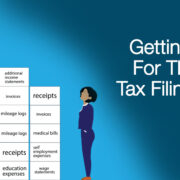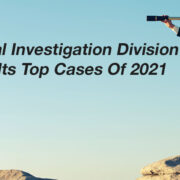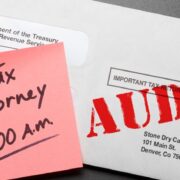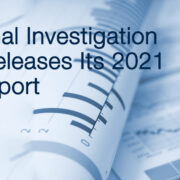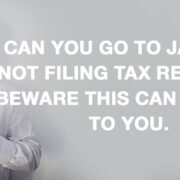Getting Ready For The 2022 Tax Filing Season
This year taxpayers get at least 3 extra days to file!
On January 10, 2022, the Internal Revenue Service (IRS) announced that it will process 2022 tax returns beginning January 24, 2022 (last year the opening date was February 12, 2021).
The IRS states that the January 24th start date for individual tax return filers allows the IRS time to perform programming and testing that is critical to ensuring IRS systems run smoothly. Updated programming helps ensure that eligible people can claim the proper amount of the Child Tax Credit after comparing their 2021 advance credits and claim any remaining stimulus money as a Recovery Rebate Credit when they file their 2021 tax return.
April 18th Filing Deadline.
The filing deadline to submit 2021 tax returns or an extension to file and pay tax owed is Monday, April 18, 2022. By law, Washington D.C., holidays impact tax deadlines for everyone in the same way federal holidays do. The due date is April 18th, instead of April 15th because of the Emancipation Day holiday in the District of Columbia for everyone except taxpayers who live in Maine or Massachusetts. Taxpayers in Maine or Massachusetts have until April 19, 2022, to file their returns due to the Patriots’ Day holiday in those states. Taxpayers requesting an extension will have until Monday, October 17, 2022, to file.
Since the IRS will begin processing tax returns on January 24th there is no advantage to filing tax returns on paper before then as no processing of those returns will start. However, tax returns that are e-filed starting on January 24th will be processed immediately. Nevertheless, it makes sense to start organizing your information early and so when the IRS filing systems open on January 24th, you are ready to submit your tax return right away.
Refunds in 2022.
Choosing e-file and direct deposit for refunds remains the fastest way to file an accurate income tax return and receive a refund. The IRS still anticipates issuing at least 90%of tax refunds in less than 21 days, but there are some important factors to keep in mind for taxpayers that could cause delay. Under the Protecting Americans from Tax Hikes (PATH) Act, the IRS is required to hold refunds for tax returns which include a claim of the Earned Income Tax Credit (EITC) and the Additional Child Tax Credit (ACTC) until mid-February 2022. Also consider that it would still take several days for these refunds to be released and processed through financial institutions, and factoring in weekends, and the President’s Day holiday, taxpayers claiming these credits may not have actual access to their refunds until the first week of March.
The status of your tax refund can be checked directly with IRS by using the Where’s My Refund? on IRS.gov and the IRS2Go phone app.
Watch for IRS letters about advance Child Tax Credit payments and third Economic Impact Payments.
The IRS started sending Letter 6419, 2021 advance Child Tax Credit, in late December 2021 and continues to do so into January. The letter contains important information that can help ensure the return is accurate. People who received the advance CTC payments can also check the amount of the payments they received by using the CTC Update Portal available on IRS.gov.
Eligible taxpayers who received advance Child Tax Credit payments should file a 2021 tax return to receive the second half of the credit. Eligible taxpayers who did not receive advance Child Tax Credit payments can claim the full credit by filing a tax return.
The IRS will begin issuing Letter 6475, Your Third Economic Impact Payment, to individuals who received a third payment in 2021 in late January. While most eligible people already received their stimulus payments, this letter will help individuals determine if they are eligible to claim the Recovery Rebate Credit for missing stimulus payments. If so, they must file a 2021 tax return to claim their remaining stimulus amount. People can also use IRS online account to view their Economic Impact Payment amounts.
Both letters include important information that can help people file an accurate 2021 tax return. If the return includes errors or is incomplete, it may require further review while the IRS corrects the error, which may slow the tax refund. Using this information when preparing a tax return electronically can reduce errors and avoid delays in processing.
The fastest way for eligible individuals to get their 2021 tax refund that will include their allowable Child Tax Credit and Recovery Rebate Credit is by filing electronically and choosing direct deposit.
Time Limits For Keeping Your Tax Records
Even though your 2021 income tax return is processed by the IRS and a refund is issued, that does not mean the IRS can later question or audit the tax return, In fact the Statute Of Limitations allows the IRS three years to go back and audit your tax return. That is why it’s a good idea to keep copies of your prior-year tax returns and supporting backup documentation for at least three years.
What Should You Do?
You know that at the Law Offices Of Jeffrey B. Kahn, P.C. we are always thinking of ways that our clients can save on taxes. If you are selected for an audit, stand up to the IRS by getting representation. Tax problems are usually a serious matter and must be handled appropriately so it’s important to that you’ve hired the best lawyer for your particular situation. The tax attorneys at the Law Offices Of Jeffrey B. Kahn, P.C. located in Orange County (Irvine), the San Francisco Bay Area (including San Jose and Walnut Creek) and elsewhere in California are highly skilled in handling tax matters and can effectively represent at all levels with the IRS and State Tax Agencies including criminal tax investigations and attempted prosecutions, undisclosed foreign bank accounts and other foreign assets, and unreported foreign income. Also if you are involved in cannabis, check out what a cannabis tax attorney can do for you and if you are involved in crypto-currency, check out what a Bitcoin tax attorney can do for you.

